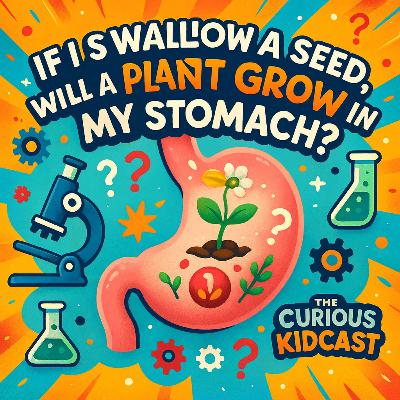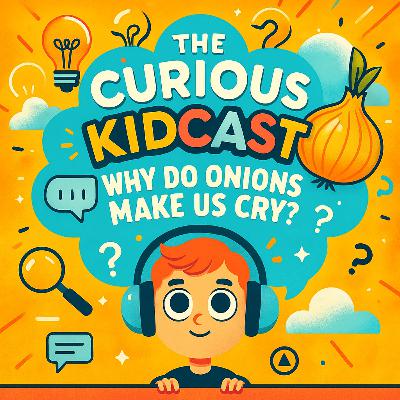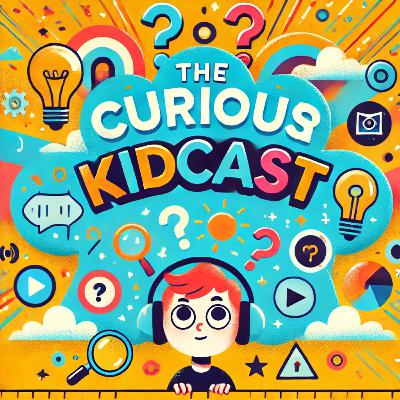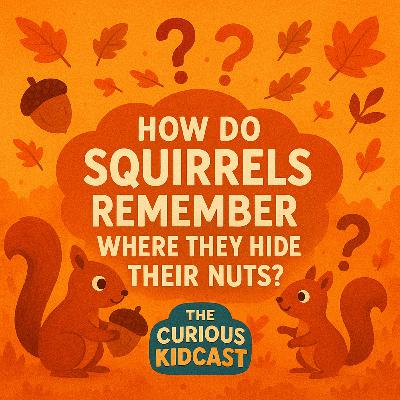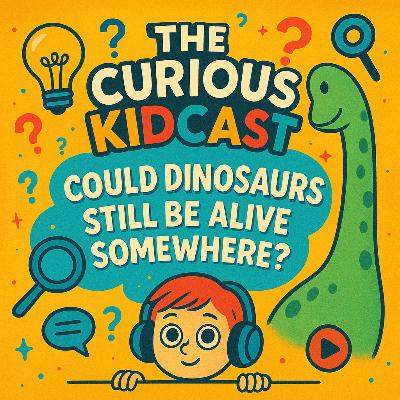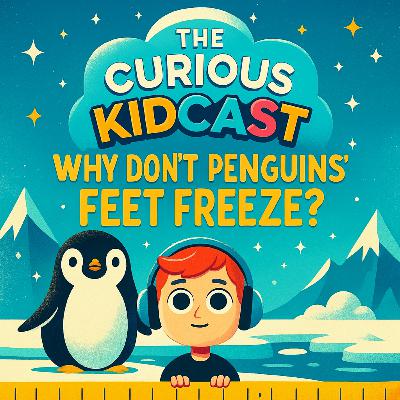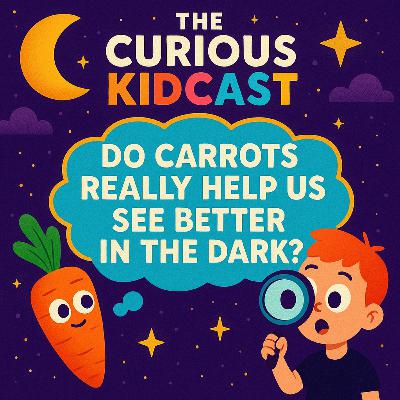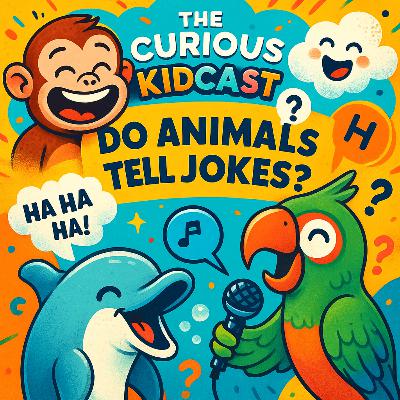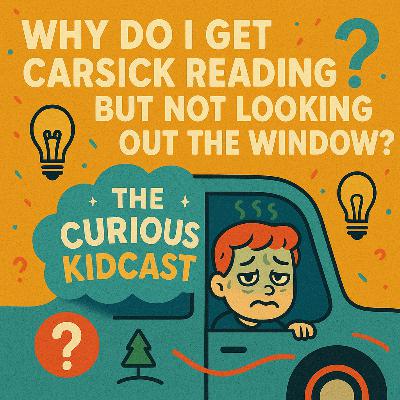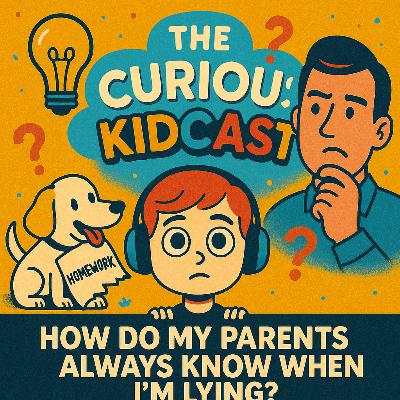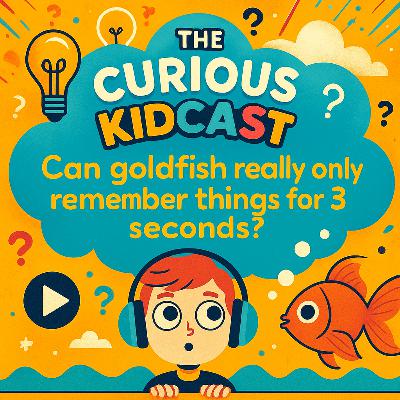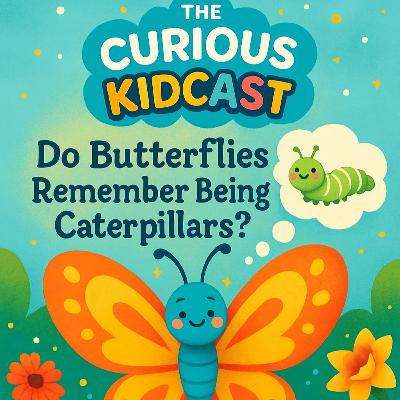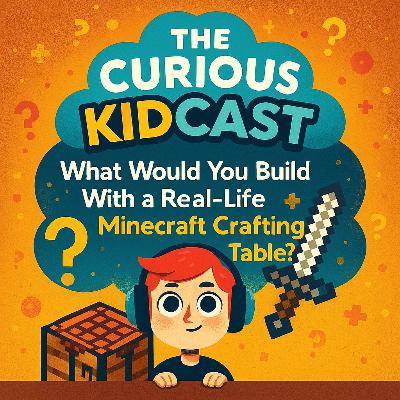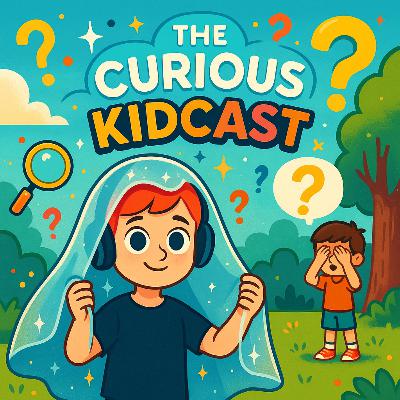If I swallow a seed, will a plant grow in my stomach? | Crazy Science Questions
Description
Join host Andy on The Curious Kidcast as we explore one of childhood's most fascinating questions: Can a plant really grow in your stomach if you swallow a seed? This fun, educational science podcast for kids dives deep into the biology of digestion, the amazing world of seeds, and why your tummy isn't a garden.
Perfect for homeschooling families and curious kids who love to learn about nature, this episode combines humor with real science facts to explain how digestion works, what seeds need to grow, and why old wives' tales persist through generations.
What Your Kids Will Learn
- Digestive Science: How the human stomach uses acid and enzymes to break down food
- Plant Biology: The four essential things seeds need to germinate (soil, water, sunlight, and air)
- Seed Anatomy: Understanding seed coats, plant embryos, and protective mechanisms
- Nature Facts: How seed dispersal works in animals and humans
- Germination Process: The fascinating stages of how seeds wake up and grow
- Fun Plant Facts: Amazing trivia about sunflowers, bamboo, apple seeds, and ancient seeds
Why Parents and Homeschoolers Love This Episode
This educational podcast episode is designed to spark curiosity and make science fun for children. Parents and homeschooling families will appreciate how complex scientific concepts are explained in kid-friendly language with plenty of humor and relatable examples.
The episode encourages critical thinking, addresses common childhood fears with facts, and includes an interactive quiz section that reinforces learning. It's perfect for car rides, family learning time, or as a supplement to homeschool science curriculum about plants, biology, or the human body.
Episode Highlights
- The historical origins of the "seeds in stomach" myth and why parents told this story
- A hilarious comparison of your stomach to a powerful washing machine with acid
- The truth about seed dispersal and how nature uses animal digestion
- Interactive quiz with three fun questions about seeds and plants
- Amazing seed facts including 2,000-year-old seeds that still grow
- Child-friendly explanations of photosynthesis, metabolism, and germination
Educational Standards Alignment
This episode supports learning objectives in:
- Life Science and Biology (plant life cycles, human body systems)
- Scientific Inquiry and Critical Thinking
- Natural History and Folklore Studies
- STEM Education for Elementary Students
Perfect For
- Homeschooling families looking for engaging science content
- Parents wanting educational entertainment for kids
- Teachers seeking supplementary classroom materials
- Kids curious about how their bodies work
- Families who love learning together through nature and science
- Young scientists eager to explore biology and plant science
Try This at Home
Extend the learning with these fun family activities mentioned in the episode:
- Grow a bean in a jar using damp paper towels
- Plant seeds in soil and track their growth in a journal
- Draw daily pictures of plant changes and observe germination
- Discuss the difference between myths and scientific facts
Subscribe and Share
If your kids enjoyed this episode, please share The Curious Kidcast with other families who love learning. Subscribe to never miss an episode where we answer fascinating questions about science, nature, animals, space, and more.
Have a question you'd like answered? Visit curiouskidcast.com to submit your child's curious question. We read every submission and feature the best ones in future episodes.
About The Curious Kidcast
The Curious Kidcast is an educational science podcast for kids that makes learning fun through humor, storytelling, and fascinating facts. Hosted by Andy, each episode explores questions from real kids about the world around them. Perfect for families, homeschoolers, and curious minds ages 7-11.
Tags:
kids science
educational podcast
homeschooling
nature facts
family learning
fun education
parenting resources
plant science
biology for kids
STEM learning
curious kids
science facts

